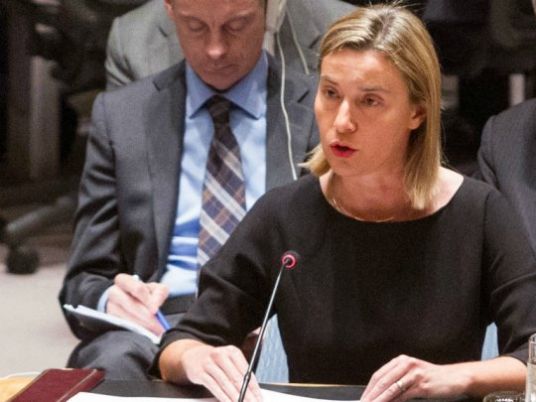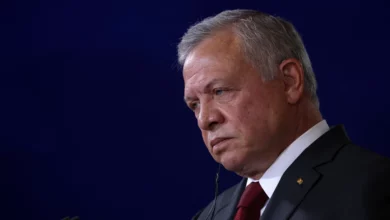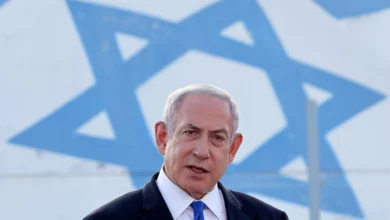
Iran and six major powers will keep negotiating past Tuesday's deadline for a long-term nuclear agreement as they tackle the most contentious issues, including the continuation of a UN arms embargo on Iran, the big powers said.
"We are continuing to negotiate for the next couple of days. This does not mean we are extending our deadline," EU foreign policy chief Federica Mogherini said outside the hotel where the talks between Iran, Britain, China, France, Germany, Russia and the United States are taking place.
The spokeswoman for the US delegation, Marie Harf, said the terms of an interim deal between Iran and the six would be extended through Friday to give negotiators a few more days to finish their work.
"We're frankly more concerned about the quality of the deal than we are about the clock, though we also know that difficult decisions won't get any easier with time," Harf said. "That is why we are continuing to negotiate."
Russian Foreign Minister Sergei Lavrov said there was "every reason" to believe a deal would be done within "a few days", and that there was an "understanding" that most of the current sanctions against Iran would be lifted.
"There is only one big problem in terms of sanctions – it is the problem of a weapons embargo," he told journalists, according to the news agency Interfax.
He said it was important to reach agreement on this as soon as possible, telling journalists that "ending the bans on supplies to Iran of the weapons required to fight terrorism is a very, very relevant objective".
It is the fourth time the parties have extended the terms of the interim deal, which was struck in November 2013 and provided Iran with limited sanctions relief in exchange for a halt to the production of uranium enriched to a purity level of 20 percent.
Extension extended
The comprehensive deal under discussion is aimed at curbing Tehran's most sensitive nuclear work for a decade or more, in exchange for relief from economic sanctions that have slashed Iran's oil exports and crippled its economy.
The negotiators missed a June 30 deadline for a final agreement and then gave themselves until Tuesday.
"We are interpreting in a flexible way our deadline, which means that we are taking the time, the days we still need, to finalize the agreement," Mogherini said, adding that there remained several difficult issues to resolve.
Among these, officials said, are Iranian demands for a UN arms embargo and ballistic missiles sanctions to be lifted, the timing of US and EU sanctions relief, and disagreements over future Iranian nuclear research and development.
"We have entered the most difficult, but also the most real, part of the negotiations," Mogherini added.
"We knew it would be difficult, challenging and sometimes hard and some things get tense and others we make progress."
She said foreign ministers now in Vienna might come and go.
"Don’t get too excited if you see ministers leaving. They might come back. They will come back. And it doesn’t mean that we are stopping the work we are doing inside. On the contrary, on the contrary."
French Foreign Minister Laurent Fabius confirmed that he would leave, and return to Vienna on Wednesday night.
The United States and its allies fear Iran is using its civilian nuclear program as a cover to develop a nuclear weapons capability. Iran says its program is peaceful.
An agreement would be the most important milestone in decades towards easing hostility between the United States and Iran, enemies since Iranian revolutionaries captured 52 hostages in the US embassy in Tehran in 1979.
A deal would also reduce the chances of a US military strike against Iran's nuclear facilities, something Washington refuses to rule out, and of a wider regional war.




